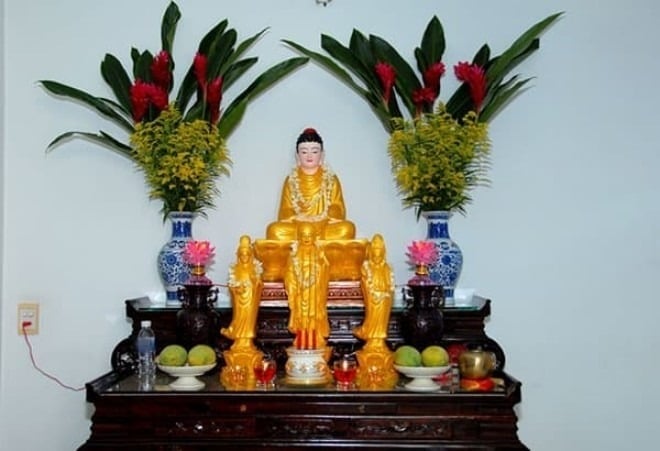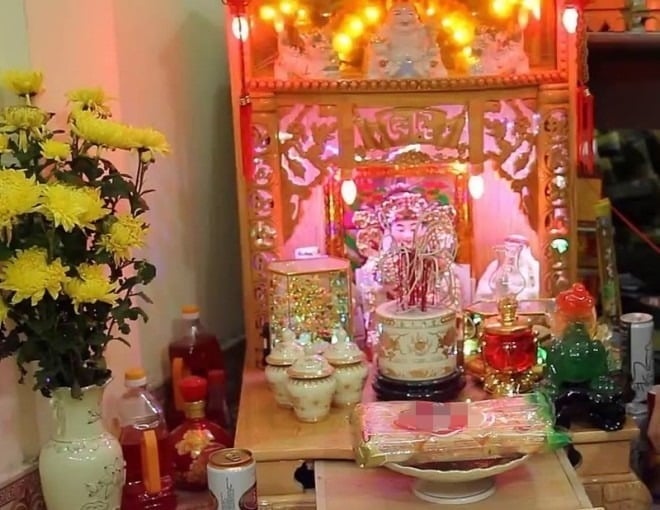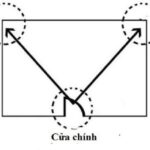On the first and fifteenth days of the lunar month, as well as during holidays and death anniversaries, a flower vase is an indispensable offering on the ancestral altar. Arranging flowers is not only a symbol of attracting and accumulating wealth but also a way to show respect to one’s ancestors.
Fresh flowers bring vitality and embody the essence of heaven and earth. Placing a flower vase on the altar not only adds solemnity and purity to the worship space but also attracts fortune and enhances the family’s prosperity, inviting the protection of ancestors and deities.
However, not everyone knows the proper way to place a flower vase on the altar.
Why do wealthy families usually place a flower vase on the left side of the altar when offering incense?
Typically, affluent families pay great attention to worship rituals and adhere to feng shui principles. They believe that arranging the altar according to feng shui not only shows respect to their ancestors but also brings blessings and good fortune to the family.
According to the feng shui rule of “east vase, west fruit,” if there is only one vase, it is usually placed on the left side of the altar, which is the east side. This arrangement follows the natural law, as the sun rises in the east and sets in the west, and flowers bloom before fruits appear. Thus, placing the vase in the east and the fruit plate in the west symbolizes harmony with nature, ensuring the family’s well-being.

Wealthy families often adhere to worship rituals and feng shui principles.
If the altar faces the main entrance in a southern direction, placing the flower vase on the left (east) side will catch the eastern or southeastern breeze, spreading the fragrance and adding tranquility and solemnity to the worship space.
In the case of using two flower vases, they should be symmetrically arranged on both sides of the altar, with the fruit plate in the middle, in front of the incense burner. This setup not only makes the altar look complete and dignified but also preserves the feng shui meaning of the flower vase.
Additionally, the owner should pay attention to other worship items such as the three-piece or five-piece sets, offering trays, and incense holders to further enhance the sanctity of the worship space.

For two flower vases, arrange them symmetrically with the fruit plate in the middle.
For smaller altars, such as those hung on walls, only one flower vase and an incense holder should be placed opposite each other. Avoid overcrowding the altar with too many flower vases, as this may disrupt the balance with other worship items.
The flower vase on the altar should be made of ceramic, porcelain, or glass, avoiding materials like copper or iron. The flowers should have a gentle fragrance, be free of thorns, and be neatly trimmed to ensure both spiritual value and safety.
“The Power Plant: Unlocking Prosperity with the Mighty Dinh Lang Tree”
In traditional folklore, the act of planting a Dinh Lang tree in front of one’s home is believed to bring about a host of benefits. This auspicious practice is thought to ward off negative energy, attracting instead a wealth of good fortune and prosperity. With the Dinh Lang tree standing guard, monetary losses are averted, and the household is protected from a myriad of potential misfortunes.







































